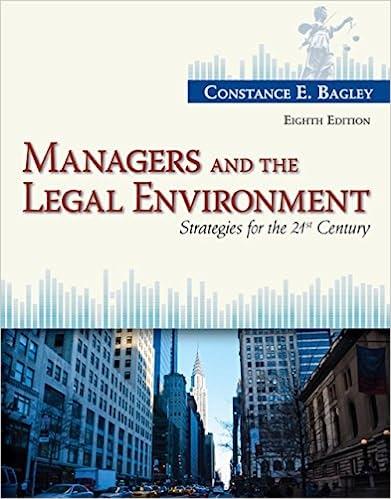In a May 2001 quarterly report, American Express disclosed that although it had lost $182 million from
Question:
In a May 2001 quarterly report, American Express disclosed that although it had lost $182 million from its high-yield debt investments in the first quarter of 2001, "total losses on these investments for the remainder of 2001 [were] expected to be substantially lower than in the first quarter." Several pages after this statement, there was a cautionary statement that the report "contain[ed] forward looking statements, which are subject to risks and uncertainties" and that "[f ]actors that could cause actual results to differ materially from these forward-looking statements include . . . potential deterioration in the high yield sector, which could result in further losses." After an evaluation of the investments, American Express issued a press release in July 2001 announcing that it would be taking an $826 million loss due to "additional write-downs in [its] high-yield debt portfolio . . . and losses associated with rebalancing the portfolio towards lower risk securities." Plaintiff purchasers of American Express stock sued the company and a number of executives for securities fraud under sections 10(b) and 20(a), alleging that American Express knew the statement in its May quarterly report predicting a significantly smaller loss was misleading at the time it was made. What factors are important in determining whether safe-harbor protection applies?
Step by Step Answer:

Managers And The Legal Environment Strategies For The 21st Century
ISBN: 9781285860374
8th Edition
Authors: Constance E. Bagley





